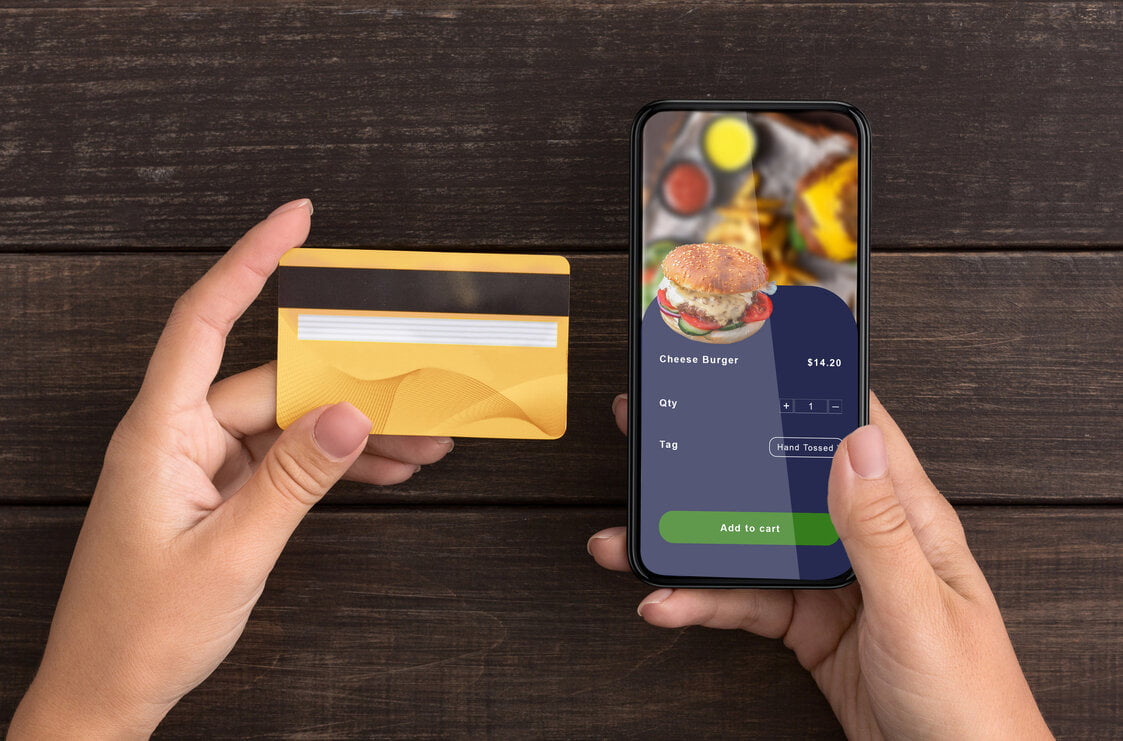Fan engagement in sports and entertainment is rapidly evolving, driven by AI, gamification, streaming, and personalized digital experiences.
At Softjourn, with our extensive experience in software development and consulting for the event ticketing industry, we are always exploring new ways to enhance fan engagement. From building interactive ticketing solutions to integrating cutting-edge technology, we understand that the key to success in sports, entertainment, and beyond lies in creating unforgettable fan experiences.
This article explores key trends shaping the industry, from AI-powered content recommendations and real-time updates to blockchain-based ticketing and immersive technologies like AR/VR.
Discover how teams, leagues, and event organizers can leverage these innovations to deepen fan connections, boost revenue, and stay ahead in an increasingly digital landscape.
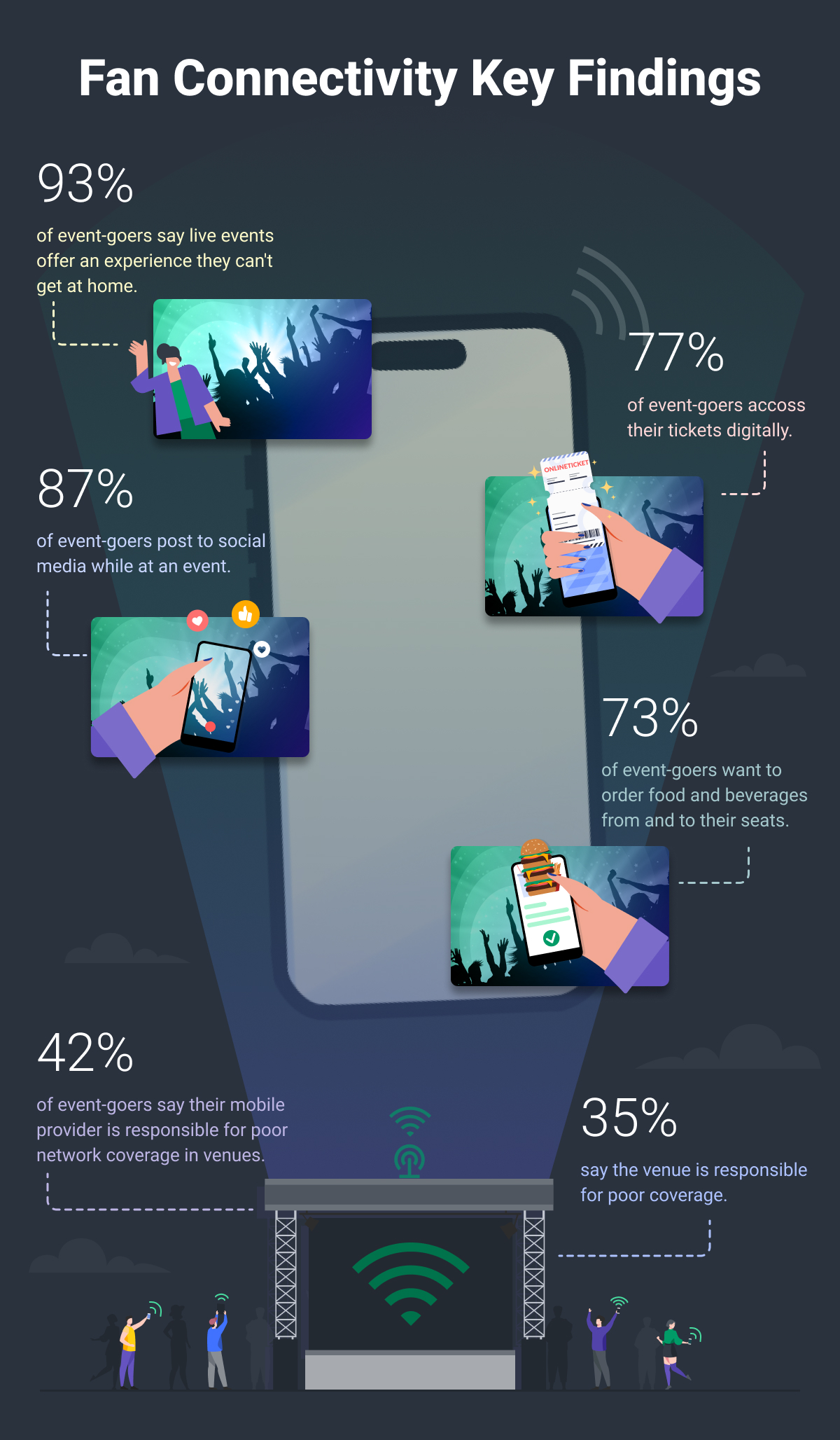
Innovations in Fan Engagement in 2026
The world of fan engagement is continuously evolving, driven by emerging technologies. A major trend shaping the industry is the rise of gamification and experiential marketing, which transforms passive fans into active participants. Integrating game mechanics into the ticketing experience enhances engagement, turning each interaction into an opportunity for deeper fan connection.
At the 2025 Opta Forum, creators like Mark Goldbridge highlighted a big shift in how fans want to experience sports—they want to feel part of the action, not just watch it. The 2026 Fan Engagement, Monetisation and AI Survey shows that this idea is now shaping the entire industry.
AI has moved from a niche tool to an essential driver of personalised, immersive fan experiences. At the same time, sponsorships are becoming deeper partnerships built around authentic digital content, and women’s and international sports are seeing a major rise in investment. Another big trend is the shift to apps and social video: by 2030, these platforms will overtake websites as the main way fans interact with sports content.
Everything we know, points to a future where winning over fans means giving them the right content at the right moment. Younger audiences especially expect immediacy, interactivity and personalised experiences before, during and after games. AI will help sports organisations deliver this at scale without losing authenticity.
Short-form videos will help attract and engage new fans, while long-form content will support deeper storytelling and monetisation. Together, these trends show how the sports media industry sees its next chapter: more personalised, more interactive and more driven by smart use of technology.
For example, loyalty programs that reward fans with points, badges, or exclusive perks create a sense of achievement and encourage repeat participation. Meanwhile, augmented reality (AR) experiences—such as event sneak peeks, interactive venue tours, and AR-powered scavenger hunts—are redefining pre-event excitement and engagement.
Another key innovation is data-driven cross-selling. By leveraging deep customer insights and fan behavior data, ticketing platforms can now offer highly relevant add-ons, exclusive merchandise, and VIP upgrades, increasing both revenue and customer satisfaction. Personalized experiences, such as commemorative souvenirs or digital tickets, provide a tangible connection to the event, making the experience more memorable while opening up new monetization opportunities.
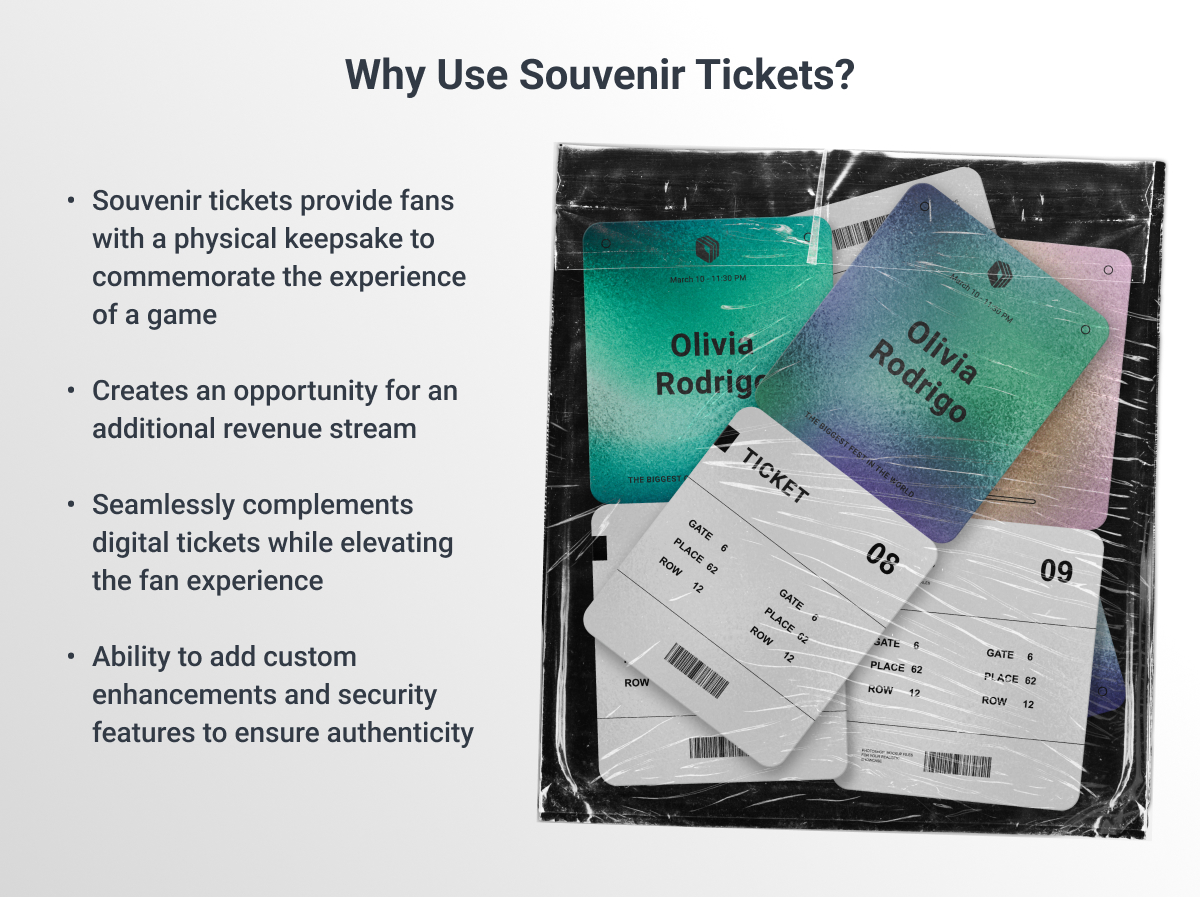
Enhancing Customer Experience Through Technology
Leading industry events, like INTIX, emphasize the importance of enhancing the customer experience through technology. A mobile-first strategy and a connected tech stack are crucial for a seamless customer journey from discovery to post-event engagement.
A global report by Nielsen found that sports fans are becoming more fragmented across streaming, app, and gaming platforms, underlining the need for sports properties to continue broad technology development and data analysis to stay on top of changing fan behaviors and capitalize on the interest of younger groups.
This approach includes providing free WiFi at venues, supporting mobile payments, and offering digital rewards. Additionally, looking beyond the ticketing industry for innovation—such as adopting practices from fintech—can introduce new technologies to improve engagement, pricing, and security.
AI-Powered Event Discovery Chatbots
At Softjourn, our internal R&D team has developed a proof-of-concept AI chatbot designed to transform the way fans discover and engage with events. Instead of scrolling through long event lists, fans can ask the chatbot natural-language questions like:
- “What concerts are happening in my city this Friday?”
- “Are there any family-friendly events under $50?”
- “What’s trending near me this weekend?”
The assistant responds instantly with personalized recommendations by cross-referencing genre, price, location, and more using the ticketing platform’s database. But it goes beyond search—ticketing organizations can use it to:
- Highlight underperforming events dynamically
- Upsell merchandise or VIP packages based on user behavior
- Collect analytics to inform content, pricing, and promotions
Designed to integrate seamlessly with existing platforms, the chatbot enhances both user experience and sales without major infrastructure overhead. It’s a real, working solution—ready to help platforms boost engagement, drive revenue, and deliver better digital experiences.
Curious how this could work for your team or venue? Let’s connect.
What is Fan Engagement?
The concept of fan engagement is related to how performers, sports teams, Esports players, and more connect with their fan base. When a franchise is interested in building its following, its online communication can play a vital role in gathering fans, enhancing their engagement, and monetizing their interactions.
Some experts find that fan engagement in sports and other types of entertainment is about the emotional connection that is created between the team or performer and the fans. If fans stopped showing support by no longer attending events and games, buying merchandise, and sharing event-related information on social media, many sports teams and entertainers would fail to succeed.
Participation in events is no longer limited to physical presence at a concert, sporting event, or conference. With the rise of interactive digital experiences, streaming platforms, and mobile engagement tools, fans can now connect with events in more ways than ever before. The more a team or artist is part of a fan’s everyday life, the more value they will place on the entertainer’s brand, increasing fan satisfaction, brand popularity, and overall earnings.
Advancements in second-screen experiences, AI-driven personalization, and immersive technologies like AR/VR are transforming how fans engage—whether they’re attending in person or following remotely. This shift opens up new opportunities for event organizers to foster year-round engagement, enhance accessibility, and create dynamic experiences that keep fans connected beyond the event itself.

The Four Quadrants of Fan Engagement
One of the hardest things when it comes to fans' engagement is to strike the right chord with fans. Too much engagement can be annoying while too little can make fans forget about events. That’s why sports marketers and consultants, Fowler and Wilson, created a matrix that explains how to manage both on and off-site fan engagement needs.
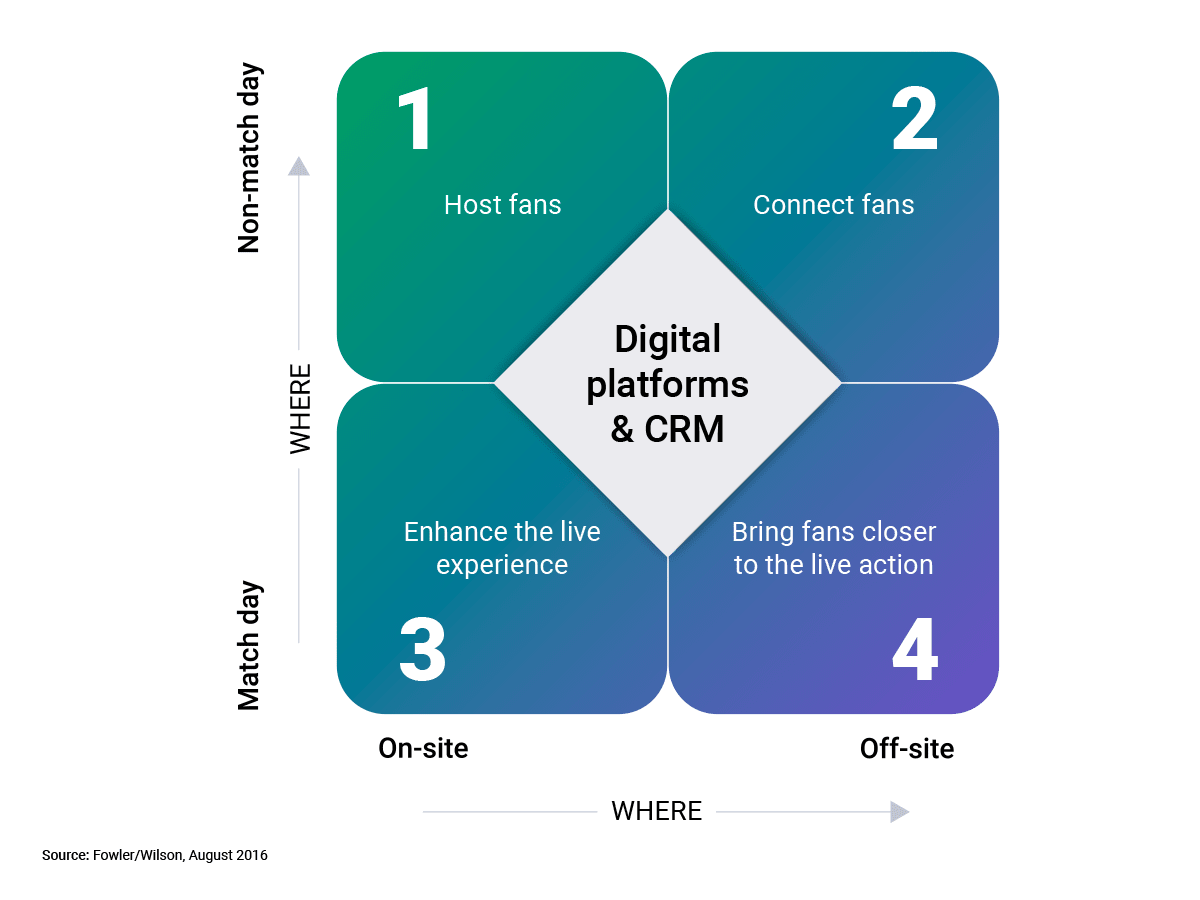
Why Fan Engagement Matters
Raising awareness is the first step toward establishing a solid fan base. Behind-the-screen videos, interviews, and competitions on social media are activities that encourage fan engagement during a show, and patron continuity in the long run. A strong emotional connection between a sports player, artist, or team and their fans leads to increased brand loyalty and a positive perception of the brand.
A Deloitte survey of more than 15,000 respondents found that the most engaged fans are six times more likely than casual fans to spend more on their teams. For example, excluding tickets, season ticket holders spend five times more than non-season ticket holders.
Fan Engagement in Sports
The connection between entertainers and their fans is growing stronger in the digital era. With the sports industry expected to grow by 7.3% over the next 3-5 years, investing in innovative fan engagement strategies is more crucial than ever. Teams and organizations that prioritize personalized and interactive experiences will be well-positioned to capture this expanding market.
AC Milan: Building Inclusive Experiences for All Fans
True fan engagement requires removing barriers that prevent certain groups from participating in live events. AC Milan and Inter Milan's groundbreaking accessibility initiative for San Siro demonstrates how major venues can create more equitable access while maintaining financial sustainability.
Starting in the 2025-26 season, the clubs will replace their previous system of free tickets with a purchasing method for individual tickets and season tickets at reduced rates in reserved sectors for disabled fans and their companions. This change ensures more equal access conditions with the general public while allowing passionate disabled fans to purchase season tickets for regular attendance.
The initiative targets people holding certification attesting to 100% disability, severe disability conditions, or disabilities requiring intensive support. Crucially, the clubs plan to reinvest all proceeds from these ticket sales into inclusion and sports accessibility projects, creating a sustainable model that benefits the broader disabled community.
This approach transforms accessibility from a compliance obligation into an engagement opportunity, demonstrating how venues can create deeper connections with underserved fan communities while advancing social impact goals.
In particular, sports fans' eagerness for content skyrocketed in the past few years and more than half of them say they enjoy being engaged all year round.
Sports teams have discovered that apps are the perfect way to increase fan engagement. As the line between the fans and teams continues to blur, the need for an interactive experience that keeps fans connected and engaged is paramount. These apps provide just that, creating an enjoyable platform for passionate fans to engage with their favorite teams on a deeper level.
Some popular fan engagement apps in sports include ScoreStream, Sports Pledge, FanAI, and Wooter. ScoreStream allows teams to post-game information and updates in real time, while Sports Pledge rewards loyal fans with exclusive products, experiences, and access. FanAI helps teams and brands understand what drives their fans’ engagement by providing in-depth insights into their demographics and behaviors. Most of these apps include features such as digital wallets, navigation to parking spaces, in-venue navigation, parking booking, and a range of exclusive rewards and discounts.
Fan engagement activities are not only reserved for game days. Many fans use their mobile devices to follow an event because they are interested in interacting with other fans, watching replays, and checking stats.
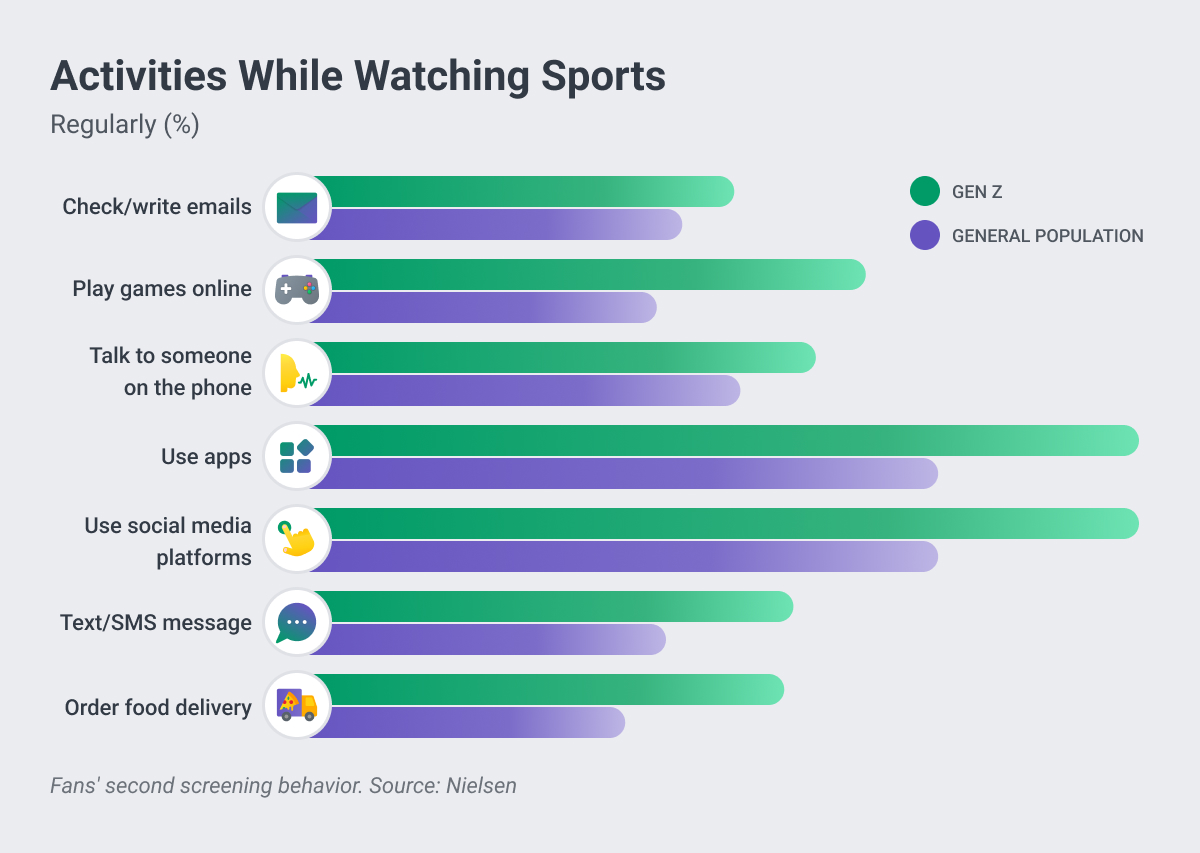
When watching a game on TV, a large number of fans reach for an additional device. According to the Sports Business Institute, 87% of sports fans are second screening while watching a live sports broadcast, while some are even triple screening or multiple screening.
Perhaps unsurprisingly, the majority of sports fans on their phones engage in social media or message their friends, potentially to share their excitement about the game with friends or other fans and see their reactions.
Esports, it's no different. The Esports audience has grown impressively from approximately 435 million in 2020 to over 600 million in 2024, and it's projected to surpass 896 million users by 2029, highlighting the sustained expansion and rising popularity of Esports worldwide. Additionally, the revenue in the Esports market worldwide is projected to reach US $4.8bn in 2025, with a projected market volume of US $5.9bn by 2029.
Twitch is one example of how an online platform can be transformed into a community-building interactive powerhouse. In 2017 there were 750,000 eSport viewers on Twitch, and in 2024 reached nearly 6 million. Twitch upholds its standing as one of the most-visited websites in the US through user engagement features, like live broadcasting, chat boxes, and interactive content.
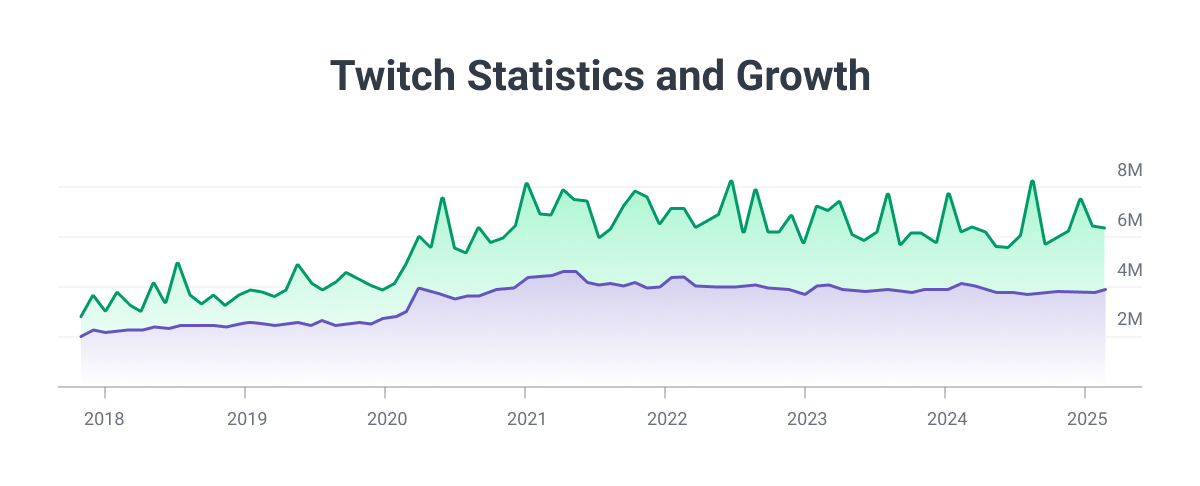
What Sports Fan Engagement Features Should be Prioritized?
Sports fan engagement ideas can include various activities and initiatives to increase fan interaction and loyalty. For example, teams can host fan appreciation days, offer exclusive discounts and merchandise, or create fan clubs and reward programs. Additionally, they can host watch parties, organize meet-and-greets with players and coaches, or host game-day events such as tailgates and barbecues.
Social media can also be used to engage with fans by responding to comments, hosting Q&A sessions, or creating content that fans can share. Finally, teams can host contests and giveaways or create exclusive content such as behind-the-scenes videos, interviews with players and coaches, or podcasts.
While there are many interesting and innovative ideas and features for sports fan engagement apps, the most common ones are:
- Team news and updates
- Results overview
- Fixtures
- Statistics
- Game analysis
- Replays
- Highlights
- Radio coverage
- Interactive social media feeds
- Exclusive content like interviews, podcasts and videos
Others like Fantasy Leagues and VR may be rising in trendiness, but are not necessarily the first tools to prioritize when initially building an app.
TikTok and London Theatre Direct: Social Media as a Discovery and Booking Engine
The entertainment industry's approach to fan engagement increasingly centers on meeting audiences where they already spend their time. The groundbreaking partnership between TikTok and London Theatre Direct represents a global-first integration that directly connects social media content with ticket purchasing.
This innovation addresses a critical industry challenge: while the West End achieved historic success in 2023 with over 17 million attendees and £1 billion in revenue, the average audience still skews older, with most ticket buyers aged 45+. The theatre industry recognizes the need to invest in next-generation audiences, particularly as many young people's first interaction with theatre now comes from viral videos, behind-the-scenes clips, or stage door reactions on TikTok.
The new ticketing integration allows content creators to add direct links to their videos, taking viewers from discovery to purchase within the same app. This seamless experience eliminates the traditional barriers between social media engagement and actual attendance. The integration helps shift narratives around affordability, as 24% of all West End tickets sold in 2024 were under £30, proving theatre is more accessible than headlines suggest.
For event organizers across industries, this model demonstrates how social platforms can evolve from marketing channels into direct conversion tools, creating shorter paths from content consumption to event attendance.
Strategizing Fan Engagement in Sports
Engagement never stops. Even when fans are not in the stadium or when players are giving online interviews, fan engagement platforms are there to keep fans interested.
The industry is shifting toward more innovative business models to attract investment, with 83% of executives believing that new commercial models will be required to sustain and grow sports engagement. These changes emphasize the need for flexible, technology-driven approaches that offer unique and monetizable experiences. Below, we've shared ways to boost sports engagement year-round:
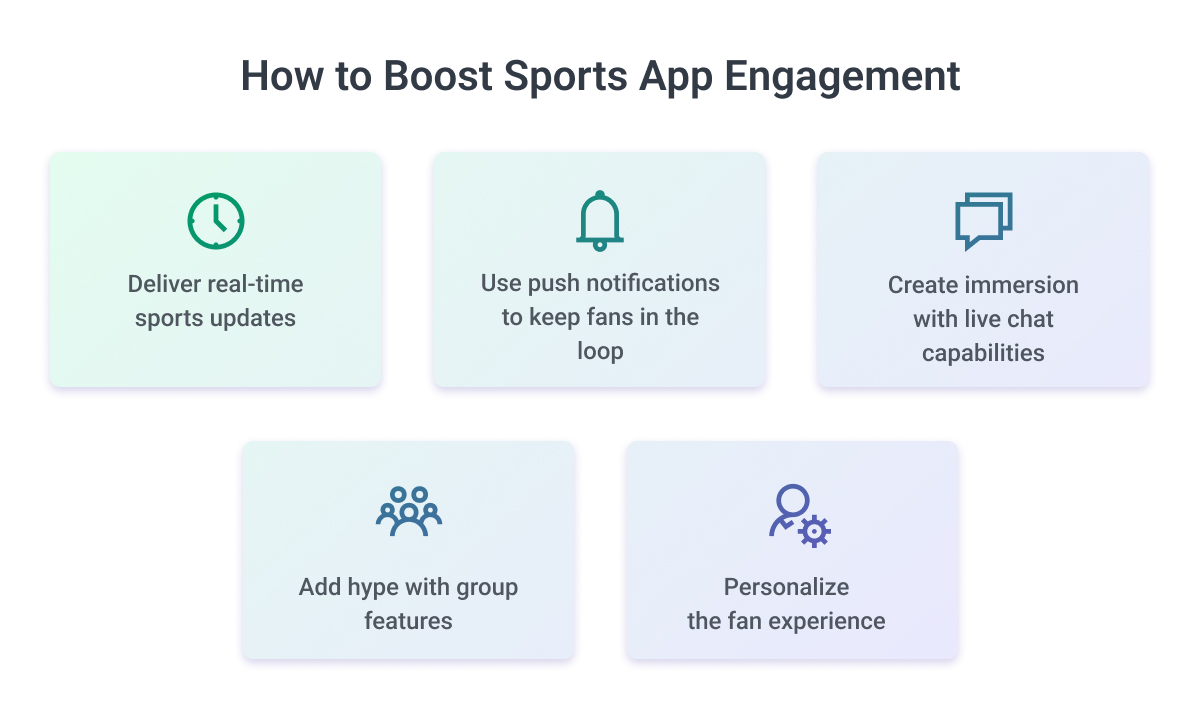
Understand fans’ needs. Designing an effective sports fan engagement strategy requires that you understand your fans' demographic, interests, and how they want to interact with each other. For example, when it comes to sports, sharing results and giving more data and statistics allow fans to gain different perspectives on the game they’re following.
Personalized messaging. Programs and features designed to communicate with everyone often speak to no one. When fans don’t feel included in the conversation, they may not stay interested, or even find a different, more engaging platform. To send personalized and captivating messaging to fans, you must first understand their preferences and appeal to their style of communication.
Support loyalty. Rewarding loyal fans is one of the best ways to show how much you appreciate their commitment to your franchise. Special offers and access to additional services can help create organic content for later use in promotional materials. Most successful stars in sports and entertainment create and maintain a culture that fans can quickly adopt as their own.
Holistic approach. Thorough consideration and planning in advance are necessary for fan engagement platforms to have better results in the long run. After every concert or sports game, make sure to let fans know what to expect next, and guide them towards the next big event. Push notifications directly link fans, ensuring that everyone stays connected.

Building Communities with a Live Chat and Fantasy Leagues
Communities built around celebrities, musicians, and sports players or teams are created through additional engagement.
Social features, like a chat box, help fans feel more connected and keep them coming back for more related content, such as player updates and leaderboards in the case of sports. Inside a live sports streaming app, fans can have a variety of information available so they are always able to tune in to what is happening.
Fantasy sports apps are another way to build community engagement for sports and entertainment. Fantasy teams compete in virtual championships and leagues based on the statistical performance of those players in actual games. Fantasy sports range from Fantasy Football drafts to ESPN Fantasy Sports.
Please accept cookies to access this content
Next-Generation Streaming Services
Participation in events can be seen in a variety of interactive forms. Prior to the pandemic, participation was usually bound to physical presence at a concert, sporting event, or conference. Today, fans can participate in many different, yet still meaningful ways.
Streaming content allows audiences to attend and participate in virtually any event remotely, while also having the ability to share their opinions and other relevant information. Audience members feel like they are contributing in a meaningful way by sharing and commenting on the content.
The shift toward digital sports consumption is evident, with younger audiences leading the transition. Fans aged 18-29 are more likely to watch sporting events via mobile devices and subscription streaming services, while those 45+ remain more loyal to traditional linear broadcasting (IBM). This generational divide highlights the importance of multi-platform accessibility in fan engagement strategies.
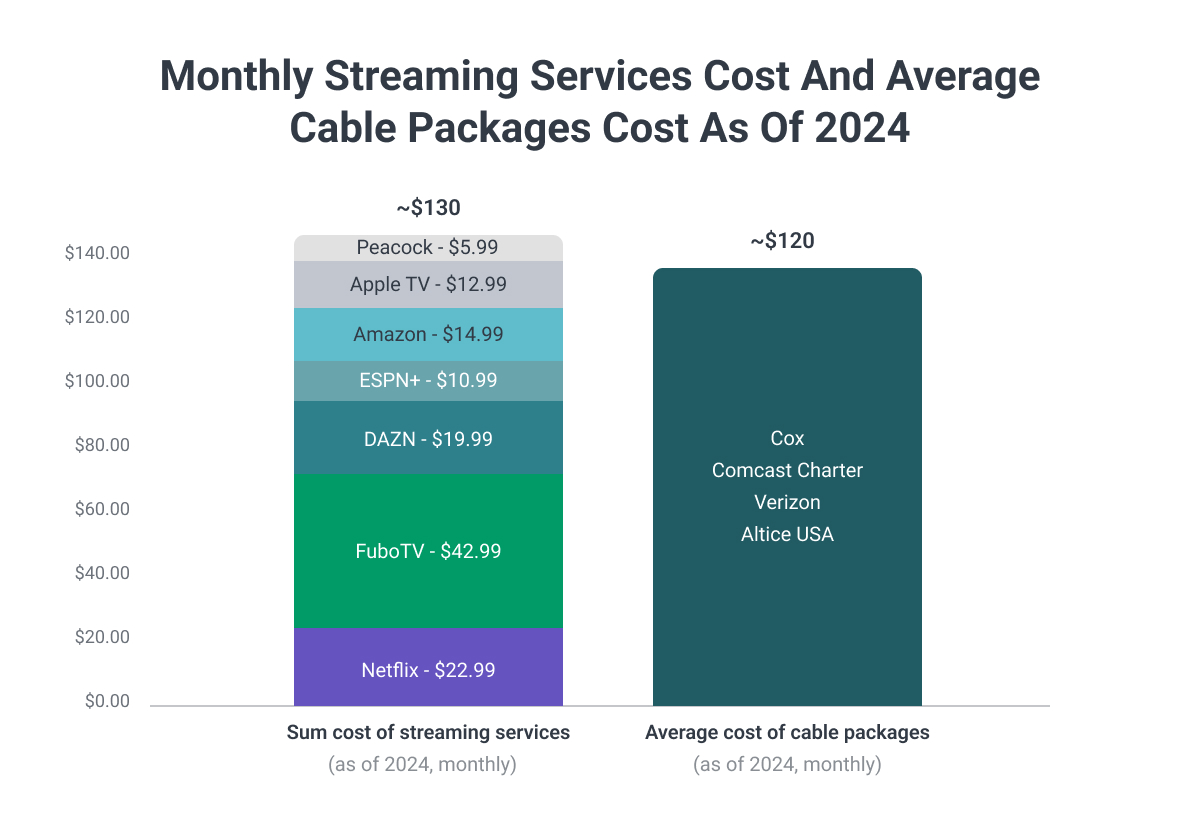
Sports fans are increasingly using multiple devices to follow live events, with younger audiences leading this shift. 10% of fans aged 18-29 use three or more devices while watching sports, compared to only 2% of fans 55+. Additionally, while TV remains the most common method for viewing sports, 56% of fans turn to social media for additional content, with highlight videos (64%) and post-match recaps (48%) being the most consumed formats. These trends underscore the need for multi-platform content distribution and second-screen experiences to maintain fan engagement.
In Japan, Yamaha developed an app, ‘Remote Cheerer’, that allows fans to cheer for their teams and create a full-stadium atmosphere while watching from the safety of their home. The app enables fans to cheer, chant, clap, and boo from their phones and broadcasts the sounds to stadiums in real-time. Fans are engaged in the streaming content, plus they create an exciting atmosphere for teams playing in nearly-empty stadiums.
Please accept cookies to access this content
Push Notifications
Quick updates allow fans to know the latest score, see exclusive content, or get breaking news. Such prompts drive traffic and revenue by reminding users your platform exists and is filled with useful and interesting information about events, performers, and teams they care about.
They also improve the live stream watching experience by making it more immersive. With various topics, fans can be notified and engaged before, during, and after the event, so they don’t miss funny and exciting moments.
Gamified Event Participation
Many consider gamification to be a silver bullet that solves problems with brand loyalty. When game mechanics are carefully planned and added to a fan engagement app, users often gain a real sense of satisfaction.
Streaming platforms still haven't adopted gaming concepts, but interest is on the rise. Nickelodeon and the NFL are using gamified participation, which encourages live interactions that work similarly to a game; users can earn badges and collect valuable game points.

Virtual and Augmented Reality
Please accept cookies to access this content
Virtual reality technology is still in its infancy, but sports and other fan engagement apps are beginning to embrace VR and AR, for gamification, mapping tools, marketing, and improved fan experience.. MLB at Bat, NBA AR, and Vikings AR are just a few examples of popular apps that utilize VR and AR to foster fan engagement.
Virtual and augmented reality apps have the potential to allow fans to attend games from their own couch, enhance sporting experiences with special effects, enjoy pregame and half-time entertainment, and even analyze player stats with in-app trackers and computer vision. Enhanced sporting experiences may incentivize fans to virtually attend games which could allow for new types of monetization, such as in-app purchases, sponsorships, and advertisements.
Advanced Analytics
AI and data analytics are becoming game-changers in fan engagement, with 63% of respondents identifying data analytics as having the most positive impact on sports, while 50% believe AI will play a crucial role. Fans also expect AI to enhance their experience through real-time updates (34%) and personalized content (29%) (IBM). These trends highlight the growing importance of AI-driven insights for both engagement and monetization strategies.
Turning your sports fan engagement app into a revenue stream becomes possible when you understand your fans and can offer services they’re interested in using. Predictive analytics are also helpful in understanding what drives the most traffic, what sponsors ROI statistics, and other valuable data.
For example, if you know your fans react well to exclusive discounts and coupons, you can create new revenue-driving opportunities with interactive shoppable features in live streams. We recommend using post-event surveys strategically to gather data and feedback from fans to improve your events and fan engagement strategy.
Blockchain in Ticketing
Blockchain-based ticketing is gaining traction as a secure way to combat fraud, enhance ticket authenticity, and offer fans verifiable digital collectibles. While the early NFT craze has subsided, blockchain-powered ticketing solutions—such as Coachella’s lifetime pass experiment and tamper-proof digital event tickets—continue to evolve, providing new engagement and security opportunities for event organizers.
Year-Round Engagement and Personalization
Year-round engagement and personalization stand at the forefront of creating lasting relationships with ticket buyers. Over 60% of fans say that a great year-round experience would make them more likely to be more engaged with their team in future seasons, with 55% more likely to purchase a ticket at some point in the future. Maintaining communication with customers throughout the year fosters a sense of loyalty and anticipation for upcoming events. Fan engagement in sports cannot be neglected if you want to be a top industry player.
Personalization, fueled by strategic data use, ensures that every interaction feels bespoke and valuable. Crafting experiences that resonate on social media or "Instagrammable Moments" can leverage digital word-of-mouth, attracting a broader audience.
Use Case: Golden State Warriors
A great example of this is the Golden State Warriors, who use over 30 sources of fan-facing data and more than 100 million data points to create tailored digital journeys within their Warriors + Chase Center app.
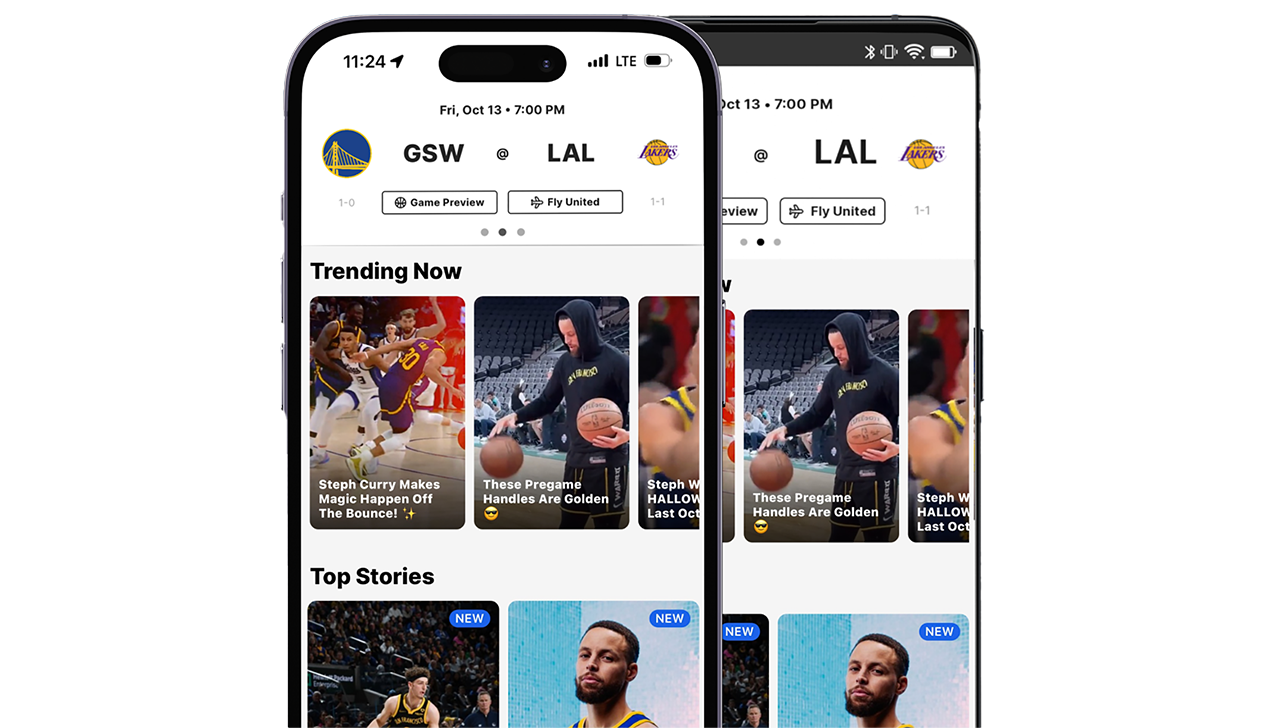
“If you're coming to the game, and we know that you really like a specific food item at a specific eatery, and you have a favorite player, we can create a digital experience tailored just for you and no one else,” explains Daniel Brusilovsky, VP of Technology.
This highly personalized fan experience, built in partnership with Google Cloud, ensures seamless touchpoints from ticketing and food orders to replays and player content—all in one app. It's a strategy designed to deepen brand loyalty in a crowded entertainment market.
Streamlining the Fan Experience Through Innovative Ticketing
Leading sports organizations increasingly recognize that seamless ticketing processes directly impact fan engagement and loyalty. Liverpool FC's recent ticketing overhaul for the 2025-26 season demonstrates how clubs can enhance supporter experience while combating ticket misuse. The club's new system automatically allocates seats to ballot winners based on their preferences, eliminating the need for fans to queue online after winning ticket access.
Members with 13 or more Premier League home credits now receive automatic access to ticket sales, while other eligible members can indicate preferred seat locations and ticket prices when registering for the ballot. This tiered approach recognizes fan loyalty while streamlining the purchase journey for all supporters.
The integration of mobile payment options, such as Apple Pay and Google Pay, further reduces friction in the ticketing process. Perhaps most significantly, the club has extended ticket forwarding periods to remain open until kick-off, providing fans greater flexibility while maintaining control over ticket distribution.
This approach addresses a critical pain point in fan engagement: the frustration caused by complex and time-consuming ticket acquisition processes that can alienate even the most dedicated supporters.
Catering to Millennials and Gen Z
Attracting and retaining younger audiences, particularly Millennials and Gen Z, requires a nuanced approach that goes beyond traditional engagement strategies. We recommend creating shareable, memorable experiences and leveraging digital channels for communication. Loyalty programs that offer memberships, subscriptions, and community engagement initiatives are key to nurturing a long-term relationship with these demographics. These strategies, focused on digital fan engagement and community building, are essential for cultivating loyalty among younger fans.
Engaging Generation Z: Insights for Sports & Entertainment
The landscape of fan engagement is evolving rapidly, especially with the rising influence of Generation Z. This demographic, known for its unique digital habits and values, is redefining how sports clubs should approach fan interaction and engagement. For example, nearly 50% of the Gen Z population want to use a second screen while consuming live sports action.
AI-enhanced engagement is particularly appealing to younger audiences. According to IBM, more than half of sports fans aged 18-29 believe AI will positively impact sports. This digital-first preference extends to how they consume content, with social media ranking as their top platform for sports highlights. In fact, real-time updates (40%) and personalized content (36%) rank as their most desired AI-driven features.
A report titled, "#GenZChallenge" shed light on the preferences and behaviors of Gen Z about football clubs. Understanding these insights is crucial for sports entities looking to foster deeper connections with this influential group. The findings highlight Gen Z's desire for inclusivity, digital interaction, and innovative content, pointing towards a need for sports clubs to adapt their strategies to resonate with this tech-savvy and emotionally invested audience. The key findings of the report are:
-
Gen Z Engagement: Gen Z highly values being heard and engaged in clubs’ activities, especially through social media interaction.
-
Balance of Tradition and Inclusivity: Gen Z fans appreciate a balance between tradition and inclusivity in their clubs, suggesting the need for clubs to incorporate these values into their communication strategies.
-
Match Day Engagement: Match Day remains a highly engaging time for Gen Z fans, with a focus on building relationships during this period.
-
Family Influence and Dual-Screening: Over 50% of Gen Z fans are introduced to their favorite clubs by family members. Also, a significant percentage (72%) engage in dual-screening, seeking instant updates and additional information from multiple sources while watching matches.
-
Video Content and Gaming: Video content is crucial for engaging Gen Z fans, who prefer live streaming and exclusive behind-the-scenes content. Gaming is favored over Esports, with a preference for relaxation rather than professional competition.
-
Social Media Preferences: Gen Z fans are active on social media, with Instagram, YouTube, and Twitter being the most used platforms. The preference for short, audiovisual content is evident.
-
Emotional and Financial Involvement: Gen Z fans show a high level of emotional involvement with their clubs and are willing to spend on club merchandise and activities.
-
Diverse Content and Interaction: To maintain Gen Z interest, clubs need to provide diverse content, including videos, match updates, club news, statistics, and humorous content (memes).
-
Engagement Outside Match Days: There's a need for clubs to find ways to entertain and involve young fans between match days, possibly through loyalty programs, exclusive products, and gamified experiences.
Examples of Fan Engagement
How do you apply a fan engagement strategy? We've gathered cases from big names in the sports industry who've developed enticing fan engagement apps that have successfully created value and provided meaningful interactions between fans and their teams.
The 5th Stand App (Chelsea Football Club)
 |  |
 | 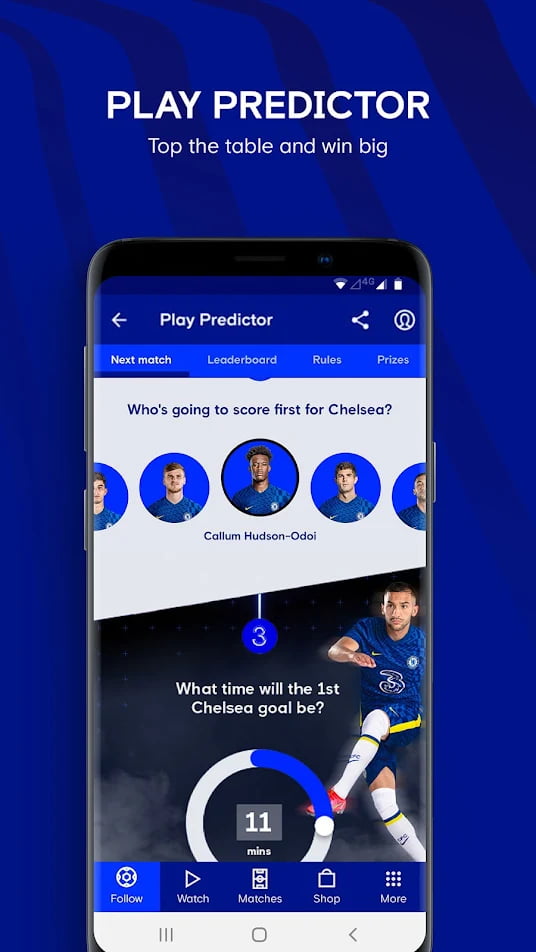 |
With over 100 million fans following Chelsea football club worldwide, the club realized how important it is to keep everyone engaged all year round. The 5th Stand mobile app was created to deliver a top-notch football experience to all their fans.
Please accept cookies to access this content
The Match Centre is a feature devoted to delivering match updates, game analyses, and live audio commentary for every match in the Champion’s League, FA Cup, and Premier League. Fans can also enjoy exclusive interviews, behind-the-scenes footage, chat options, and breaking news related to the coaches, managers, and players.
Flex NBA AR App
Please accept cookies to access this content
The NBA has been considered to be one of the pioneers of fan engagement, and by launching a mixed-reality app, they’ve become one of the first to create an Augmented Reality (AR) app in the sports world. Powered by Apple’s ARKit, the application allows users to shoot hoops and create an NBA-like backboard. Fans can use it to play different games, create a lineup of rising stars and MVPs, play with their favorite teams, and create leaderboards.
With AR Portals, the app allows fans to enter the backstage of every game and immerse themselves in a 360-degree video of their favorite players and teams.
Mercedes-Benz Stadium App (The Atlanta Falcons)
 |  |
What The Future Holds for Fan Engagement in Sports
AI-driven personalization is becoming a global priority, with many countries leading the way in demand for real-time updates and tailored content. Additionally, summarized content (33%) ranks as the top priority among fans consuming additional sports content, followed by personalized content (26%). These trends indicate that the future of sports engagement will be defined by AI-powered, hyper-personalized content that meets fans where they are—on social media, streaming platforms, and second-screen experiences.
More interactive streaming products will undoubtedly play a large role in how people consume streamed sports, gaming, and music content. Increased personalization and gamification transform passive viewers into active audiences.
As sports organizations explore new revenue opportunities, women's sports stand out as a high-growth segment. 85% of experts forecast double-digit revenue growth for women’s sports over the next 3-5 years, emphasizing the need for targeted engagement strategies to capture and sustain this momentum.
The future of fan engagement lies in continuous innovation, embracing new technologies, and adapting to changing audience expectations. By integrating these latest trends into fan engagement practices, the entertainment industry can create more immersive, personalized, and memorable experiences that foster deeper connections with fans.
Ticketing Industry Updates
AI Predicted to Reshape Fan Engagement Across Ticketing
At TheTicketingBusiness Forum 2025, speakers emphasized that AI is set to transform how ticketing organizations engage with fans. From delivering hyper-personalized experiences to enabling intelligent automation, AI is helping teams boost revenue, tailor communications, and create more seamless interactions across the entire fan journey.
“AI is going to be the connective tissue,” said Vikram Rajkumar of Satisfi Labs, highlighting how the technology can unify marketing, ticketing, and customer service to drive better business outcomes and deeper fan loyalty.
As AI tools become more embedded, their ability to analyze behavior, predict demand, and offer real-time responses is reshaping how organizations think about engagement.
[Source: TheTicketingBusiness Forum, May 2025]











